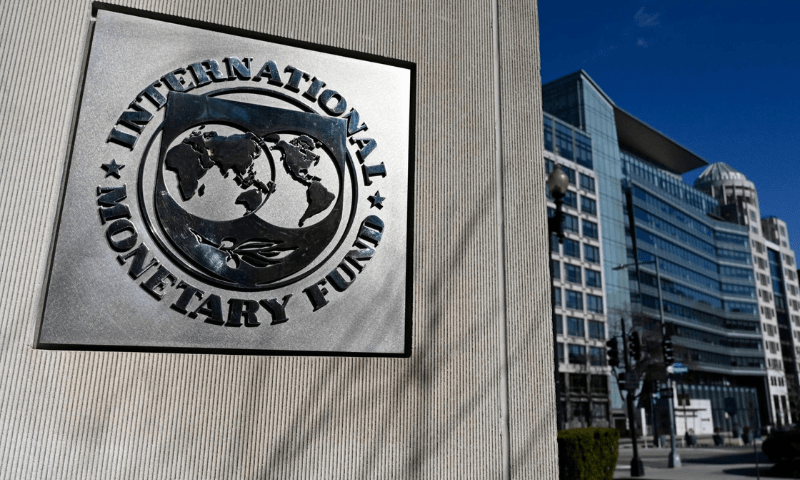• Fund approves $1bn disbursement under EFF and $1.4bn for new climate resilience facility
• India abstains from vote during Executive Board meeting
• PM Shehbaz lauds economic team, slams New Delhi’s false narrative
WASHINGTON: Despite Indian attempts to derail Pakistan’s loan programme, the International Monetary Fund (IMF) on Friday approved two major financing arrangements for the country — a $1 billion disbursement under the ongoing Extended Fund Facility (EFF) and a new Resilience and Sustainability Facility (RSF) aimed at supporting climate-related initiatives.
The approval unlocks a total of $2.1bn for Pakistan, including the $1.4bn under the RSF programme, which spans 28 months and is designed to bolster the country’s resilience to climate-induced shocks.
In March, the IMF reached a staff-level agreement with Pakistan on this new climate financing arrangement, alongside the first review of the 37-month, $7bn EFF programme that was approved in September 2024 — Pakistan’s 24th IMF-supported programme to date.
According to the IMF, this assistance is intended to help Pakistan build resilience and enable sustainable growth.
During Friday’s IMF Executive Board meeting, India abstained from the vote. Ahead of the decision, Indian officials had raised objections, alleging misuse of global funds by Pakistan — claims that Islamabad has consistently rejected as politically motivated.
India’s Foreign Secretary Vikram Misri stated on Thursday that New Delhi had instructed its representative at the IMF to raise concerns over Pakistan’s eligibility for international financing. He also called on international institutions, including the World Bank and the Financial Action Task Force (FATF), to reassess Pakistan’s status.
Progress in restoring stability
Following the board discussion, Deputy Managing Director Nigel Clarke said in a statement that Pakistan had made important progress in restoring macroeconomic stability despite a challenging environment.
“Since the approval of the EFF, the economy continues to recover, with inflation sharply lower and external buffers notably stronger. Risks to the outlook remain elevated, however, particularly from global economic policy uncertainty, rising geopolitical tensions, and persistent domestic vulnerabilities.”
He said the steadfast implementation of the FY2025 budget and the passage of key fiscal reforms, notably the Agricultural Income Tax, underpinned the process of rebuilding policy making credibility.
“Continuing to mobilise greater revenue from undertaxed sectors and the noncompliant will make the tax system more equitable and efficient. This, combined with federal and provincial spending discipline, will strengthen sustainability, build resilience, and reduce the public sector’s crowding out of private credit.”
According to the IMF official’s statement, the timely implementation of power tariff adjustments had helped reduce the stock and flow of circular debt. “Meanwhile, cost-side reforms are showing early signs of success but need to be accelerated to safeguard the energy sector’s viability and improve Pakistan’s competitiveness.”
He also credited the State Bank of Pakistan’s (SBP) tight monetary policy stance as being pivotal in reducing inflation to historic lows. “Monetary policy should remain appropriately tight and data-dependent to ensure inflation is anchored within the SBP’s target range. A more flexible exchange rate will facilitate the adjustment to external and domestic shocks, aiding the rebuilding of reserves.”
He also called for prompt action to address undercapitalised financial institutions and extolled vigilance over the financial sector are necessary for financial stability.
“Accelerating structural reforms will unlock Pakistan’s competitiveness, creating conditions to attract high-impact private investment. Reform priorities include reducing trade and investment barriers, advancing SOE reforms, and decisively strengthening governance and anti-corruption institutions.
On the new RSF, Mr Clarke said it would help reduce Pakistan’s vulnerability to extreme weather events, and enhance macroeconomic stability and fiscal sustainability.
“The reforms under the RSF aim to build resilience to natural disasters by strengthening public investment processes, supporting efficient use of scarce water resources, strengthening coordination of natural disaster response and financing, improving the information on climate-related risks, and supporting Pakistan in meeting its international commitments.”
PM lauds economic team
Meanwhile, PM Shehbaz Sharif expressed satisfaction over the IMF approval of the $1bn tranche for Pakistan, slamming India for what he described as failed underhanded tactics to sabotage the programme, APP reported.
In a statement issued by the PM Office, Shehbaz Sharif lauded Deputy Prime Minister and Foreign Minister Mohammad Ishaq Dar, Finance Minister Muhammad Aurangzeb, Finance Secretary Imdadullah Bosal and the entire economic team for their role in securing the crucial IMF support.
India’s desperate moves to sabotage the IMF programme have failed, he said, adding that international financial institutions have rejected India’s false narrative. The prime minister emphasised that the approved IMF tranche would help stabilise the country’s economy and guide it towards long-term recovery.
Published in Dawn, May 10th, 2025


